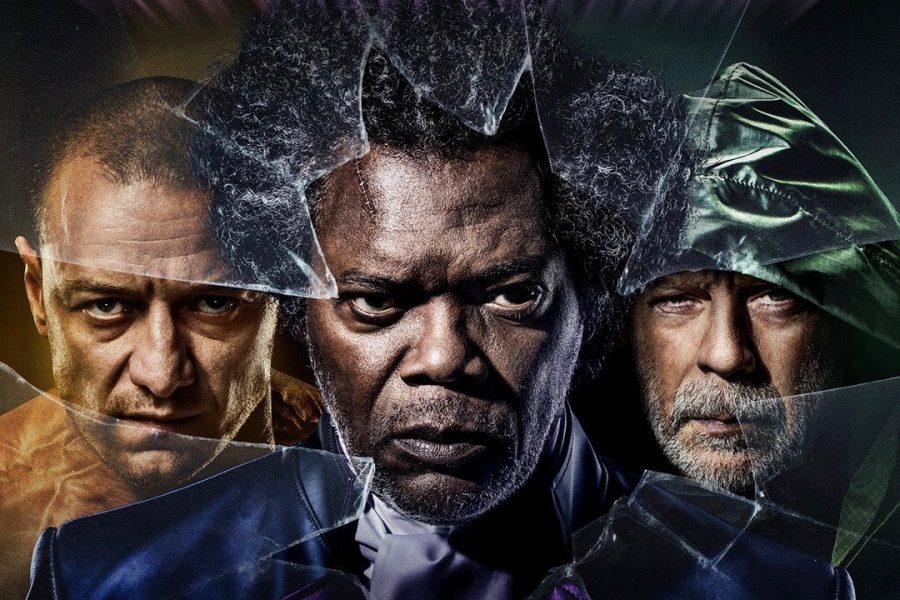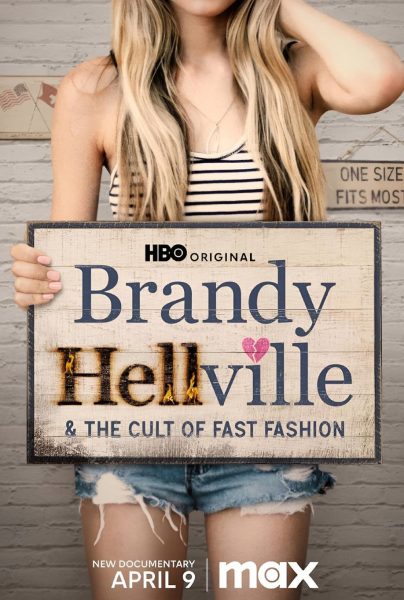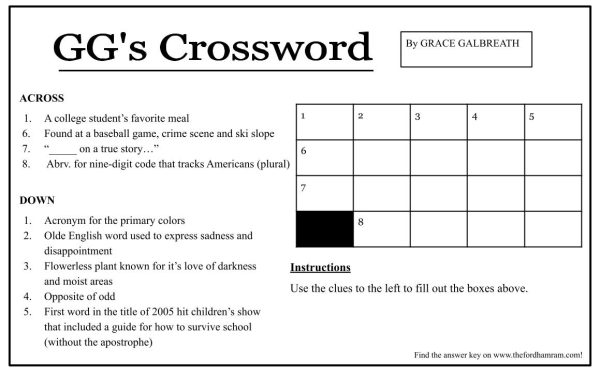Shyamalan’s “Glass” Is Full Of (Too Many) Twists
The surprise ending of “Split” was not typical of an M. Night Shyamalan twist. Rather than flip the themes of the movie on its head as he did in “The Sixth Sense” or explain a secretive aspect of the story as in “The Village,” the writer-director instead expanded the film’s world by establishing narrative connections to a past hit.
Bruce Willis’ cameo as David Dunn, the protagonist of “Unbreakable,” placed both films in the same fictional universe. It set everyman superhero Dunn on a collision course with “Split” lead and villain Kevin Wendell Crumb (James McAvoy), the patient with Dissociative Identity Disorder who gains his own superhuman abilities when his animalistic alternate identity known as The Beast takes over. David and Kevin finally face off in “Glass” before both becoming pawns in the elaborate plot of Elijah Price/Mr. Glass (Samuel L. Jackson), David’s old foe from “Unbreakable.”
The final installment in the trilogy is thoroughly entertaining, but Shyamalan’s self-indulgence and some technical hiccups make it divisive and not completely satisfying.
The greatest strength of “Glass” is its cast. McAvoy gives another absolutely fantastic performance and the way he makes clear distinctions between Kevin’s many personalities (of which he gets to play even more than in “Split”) is remarkable. It is truly hard to believe you are watching the same actor bring to life, for example, both the perpetually 9-year-old alter ego Hedwig and the savage, but majestic, Beast.
In what turns out to be one of the film’s best comedic beats, Dr. Ellie Staple uses high powered strobe lights to force different alters into control, one after another, and the speed with which McAvoy changes his demeanor is astounding.
Of the three main characters, David Dunn’s role is the least profound. Once David, Kevin and the film arrive at the asylum, the story shifts to Elijah’s and, to a lesser extent, Kevin’s perspective.
In a way, The Overseer is positioned more as an antagonist, the one major roadblock to Kevin and Elijah’s success, even if the viewer knows it is David who is in the right. It is an interesting and unusual way to use the character, but it leaves Willis with a more minor role, and fans of “Unbreakable” may be slightly disappointed. That said, Willis does everything he needs to do perfectly, showing again why he is an ideal performer for playing relatable, down-to-Earth heroes.
Given the film’s title, it should not be surprising that the most meaningful role goes to the man known as Mr. Glass. Elijah is at a crossroads here, and Jackson’s performance radiates the vibrant excitement and stoic determination of a man on the verge of achieving his dream. The ease with which the viewer begins to side with the character despite the horrible things he does is a testament to the legendary actor’s inherent charm and charisma.
The key supporting players in each of the lead’s lives also have plenty to do. Joseph’s determination to help and protect his father gives the film a nice dose of extra heart.
Anya Taylor-Joy reprises her role as Casey Cooke, the girl The Beast spared from his rampage in “Split,” giving another quietly compelling performance and bringing some of the best deliveries out of McAvoy.
Despite limited screen time, Charlayne Woodard’s work as Elijah’s mother accomplishes the vital task of letting the viewer glimpse into the heart of the tragic figure at the center of the film.
However, despite its considerable merits, “Glass” is a heavily flawed film. The one major aesthetic problem is in the lifeless, bland way the action scenes are staged. Shyamalan’s focus with the film is admittedly not on delivering blockbuster spectacle, and that is fine, but the end of “Split” and the beginning of this film do considerable work in building anticipation for David and Kevin’s confrontation.
Unfortunately, the payoff for all that buildup is minimal. The two fights the characters have consist almost solely of Willis and McAvoy grabbing each other’s throats or torsos and slamming each other into walls or parked cars.
More problematic are the issues with the script and story. Like “Unbreakable,” “Glass” features a good deal of meta-commentary on the nature of comic book storytelling but unfortunately is much clumsier about it than the earlier film was.
While the analysis of superhero and villain archetypes in “Unbreakable” was firmly rooted in David and Elijah’s arcs, offering an examination of the kind of psychology that makes someone fight crimes or commit elaborate ones, in “Glass” the meta aspect is largely reduced to Elijah dramatically announcing which part of a comic book story the characters are reenacting.
Shyamalan clearly hopes to subvert the expectations his antagonist brings to mind, and, to be fair, the characteristic plot twists that end the film are genuinely surprising, but that does not prevent the film’s attempts at self-awareness from being cheesy.
Speaking of the twists, that is another issue. Shyamalan ends the film with not one but two of his trademark big reveals. The second has enough of a foundation set-up to work, but the first truly comes out of left field.
It works thematically and emotionally with the story the film is telling, but there are no hints earlier that something unexpected is coming.
“Glass” is, ultimately, characteristic of most of Shyamalan’s work. The characters, atmosphere and creativity of it all are to be commended. However, the writer-director’s desire to do the unexpected has mixed results on the film’s quality.
By Greg Mysogland











